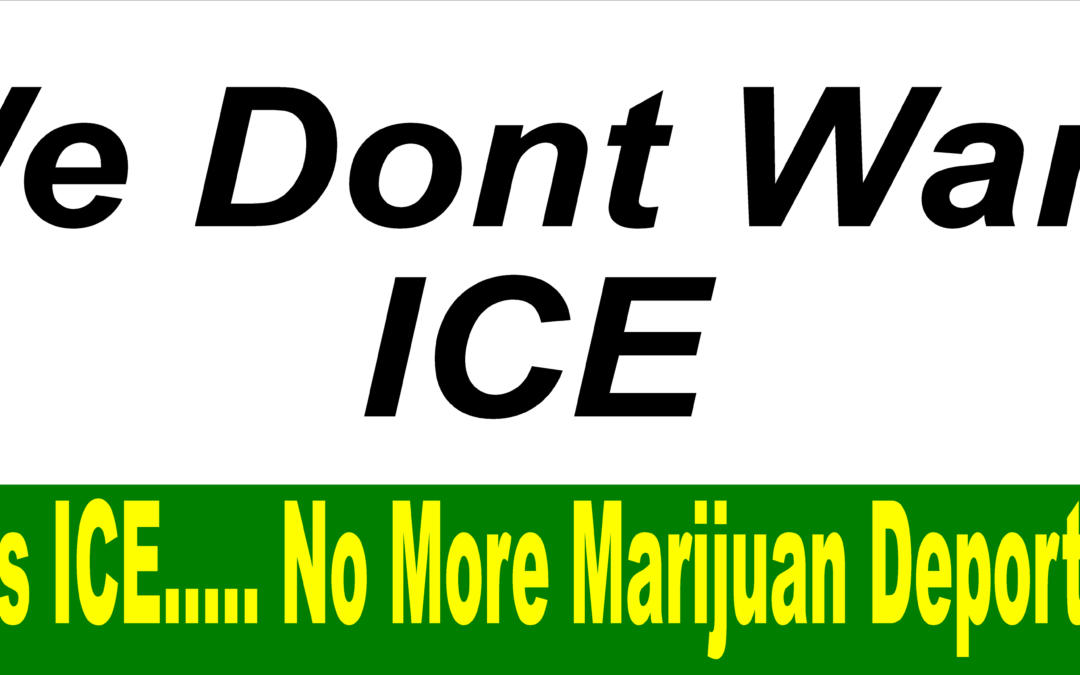LA Immigration riot marijuana use has been documented. In June 2025, Los Angeles was thrust into the national spotlight. As protests erupted in response to federal Immigration and Customs Enforcement (ICE) raids targeting undocumented immigrants. While the primary focus was on immigration policies and enforcement, the issue of marijuana use also surfaced, adding complexity to the discourse. This article explores the multifaceted relationship between the immigration protests and marijuana use in Los Angeles during this period.
The Role of Marijuana in Immigration Enforcement
Marijuana-related offenses have historically been a significant factor in immigration enforcement. Between 2002 and 2020, over 127,000 individuals were deported for marijuana-related offenses. Accounting for 35% of all deportations based on drug-related convictions. Notably, a substantial portion of these deportations involved individuals convicted solely for possession or use .hrw.org
In California, where marijuana use has been legalized for both medical and recreational purposes, the federal government’s stance on marijuana remains unchanged. This discrepancy has led to tensions, particularly among immigrant communities. Who may face deportation for offenses that are legal under state law but still classified as federal crimes.

LA ICE Immigration Riot Marijuana
LA Immigration Riot Marijuana Use Among Protesters
During the June 2025 protests in Los Angeles, there were reports of marijuana use among some demonstrators. While the majority of protesters were focused on issues related to immigration enforcement. The presence of marijuana use highlighted the ongoing tensions between state and federal laws. So some activists viewed the use of marijuana as an act of defiance against federal policies they deemed unjust, including those related to drug enforcement.
However, the visibility of marijuana use during the protests also attracted attention from law enforcement. While marijuana possession is legal in California, federal authorities maintain jurisdiction over drug-related offenses. So thus leading to potential legal repercussions for individuals involved in marijuana use during the demonstrations. Many protestors are using vinyl banners as a way of communicating their thoughts.
The Intersection of Marijuana Legalization and Immigration Policy
The juxtaposition of marijuana legalization in California and stringent federal immigration policies underscores a significant policy conflict. Individuals who have been lawfully residing in California and legally using marijuana may still face deportation if they have prior marijuana-related convictions, even if those convictions occurred before the state’s legalization .hrw.org
This legal incongruity has led to calls for reform from various advocacy groups. Organizations such as the American Civil Liberties Union (ACLU) and the Drug Policy Alliance have advocated for changes to federal immigration laws to prevent the deportation of individuals based solely on marijuana-related offenses that are legal under state law.hrw.org
Community Reactions and Legal Challenges
The intersection of marijuana use and immigration enforcement has prompted legal challenges and community reactions. In response to the federal government’s actions, California Governor Gavin Newsom and Los Angeles Mayor Karen Bass have criticized the deployment of federal troops to manage protests, arguing that it exacerbates tensions and undermines state authority .news.com.au+1thetimes.co.uk+1
Additionally, legal challenges have been mounted against federal immigration policies that result in the deportation of individuals for marijuana-related offenses. These challenges aim to align federal immigration laws with state policies that have legalized marijuana use, seeking to protect individuals from deportation based solely on actions that are legal within their state.
Conclusion: A Call for Policy Reform
The events in Los Angeles during June 2025 highlight the complex relationship between marijuana use and immigration enforcement. The continued federal classification of marijuana as an illegal substance, despite state-level legalization, creates legal uncertainties for individuals who may be subject to deportation for offenses that are no longer criminal under state law.
As the nation continues to grapple with these issues, it is imperative for policymakers to consider reforms that address the disparities between state and federal laws, ensuring that individuals are not unjustly penalized or deported for actions that are legal within their state. Such reforms would not only promote fairness but also foster trust and cooperation between immigrant communities and law enforcement agencies.
Please remember to protest peacefully. Violence is not an option.

